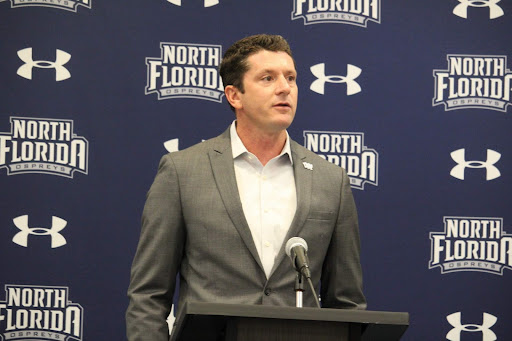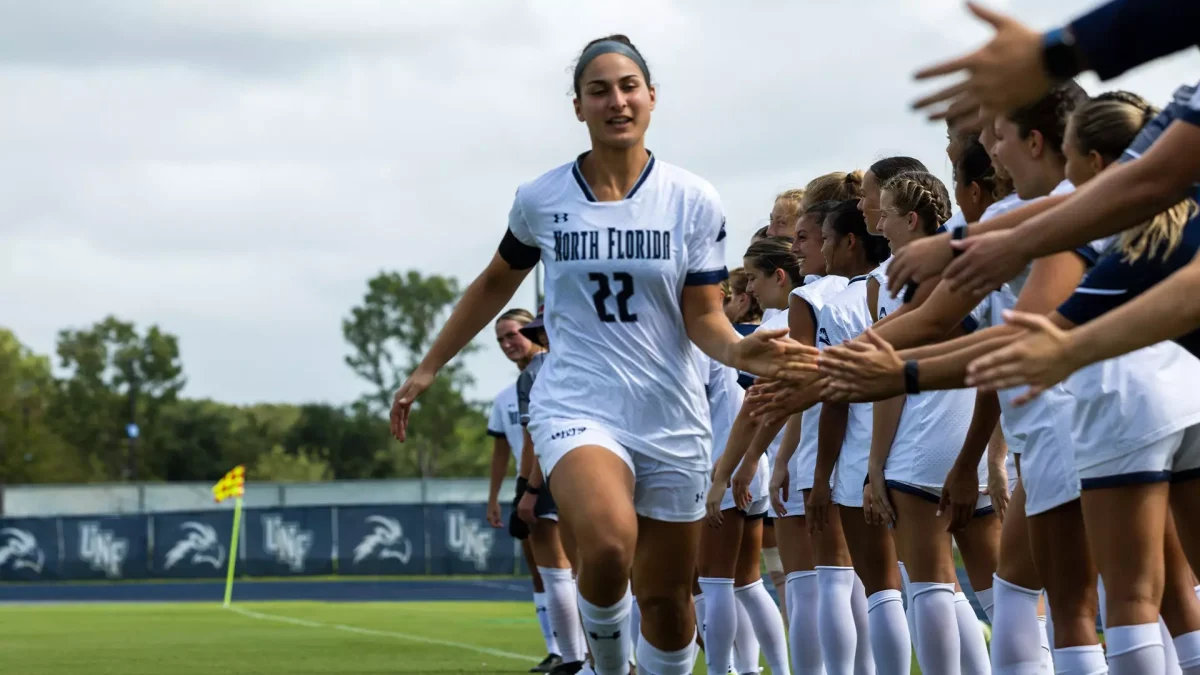Dr. David Goff, chair of the communication department, said he is aware of the labor department guidelines and believes the UNF Department of Communication internship program is in compliance.
“As for criterion three, I sincerely hope and believe that our interns do not ‘impede’ their internship host organizations,” he said.
However, he said as part of students’ learning experience, interns typically perform tasks for their host organizations.
“Often interns are trained or taught how to perform these tasks as the host organization would like them to be performed, so these tasks contribute to interns’ learning experience,” he said. “I assume that in the absence of an intern, someone else in the organization would perform these tasks otherwise they would constitute meaningless busy work of little value to the interns.”
UNF College of Arts & Sciences Career Counselor Valarie Robinson said the way UNF Career Services defines internships is that they must help students habitually gain practical work experiences. However, she said the catch could be if an employer sees a student as another opportunity just to do field work or minor duties.
“Nonpaid internships can be very beneficial if they’re providing career related exposure to certain tasks, certain terminology or software programs they use,” Robinson said. “Those types of things [make] you more competitive in the long run.”
Joshua Baker, a UNF alumnus, said he regrets not doing more research for his unpaid academic summer internship for an Orlando sports team.
“I went into the internship thinking I was going to get something different,” he said. “I thought it was going to be organized and professional. To be completely honest, I was misinformed.”
Regarding the criteria, Baker said the internship did not necessarily comply.
Baker said it was rare when someone acknowledged him, and a lot of times he would show up for work or practice, and nobody would show up for hours.
“I felt that I didn’t learn anything more than I already knew from the time I started until the time I left,” Baker said.
Mostly, he said he worked as the team’s waterboy and delivered team meals.
Baker defines an internship as gaining “real-world experience.”
“I don’t feel like my internship did that for me,” he said regarding his 400-hour, full-time internship.
“In that 400-hour time frame, I did not necessarily learn anything that I could take with me in the world of professional sports,” he said.
Erica Chenette, a UNF alumna, finished an unpaid co-op internship in Rhode Island this summer, working for Fox Providence on its morning talk show, The Rhode Show. She said she thought the internship went really well.
“I got to actually end up going out on shoots and wrote stories and edited them,” she said. “The thing I liked the most about the internship was the first-hand experience. Once they trust you to do something they allow you to go out and do it all on your own.”
Chenette said her internship was an extremely valuable experience, and she was happy to contribute her efforts to the company.
“Without it, I would not be in the same place,” she said. “I don’t feel like I was being taken advantage of because I feel like as much as I put into it, I got back.”
Real estate broker Brandon Buckley hires unpaid interns for his real estate company in Jacksonville, Regional Real Estate & Management, Inc.
Buckley said, within students’ program of study, his internship program provides “specific things within that program of study, directly from what [students] are going to school for, or it could be some mundane thing that isn’t necessarily what they are going to school for.”
Buckley said his internship positions are unpaid due to the nature of the business, but he believes working for college credit is justifiable.
“What’s better? Three years at Whiskey River or five summer internships with different companies and businesses, and professionals willing to give you a personal recommendation on your work ethic and your reliability?”
Buckley also said he doesn’t think interns should be doing “gopher work” or making coffee.
“I don’t think that’s an internship, and I don’t think, if that’s what an internship becomes, that anyone should stick around,” he said. “It should be in relation to special projects and alternative type of work that do not have to do with the day-to-day operations of a company. [It is] something that is not the core function of the company and would not replace someone that would be paid.”
Tad Delegal, a Florida bar labor and employment specialist and attorney of law at Delegal Law offices in Jacksonville, said the real test for whether an internship should be paid is whether or not the benefit of the internship is to the intern or the company.
Delegal said he has never heard of any claims by interns demanding minimum wage perhaps because they do not want to “rock the boat.”
Regarding the Fair Labor Standards Act being an applicable policy, Delegal said the reality is a lot of employers will impose on their employees an obligation to work an excessive number of hours without compensation “just to keep a job.”
“I think we need to level the playing field,” Delegal said. “And that is what the Fair Labor Standards Act does. It says to employers, ‘you can’t just work people like slaves.’ You’ve got to pay them for their work. Even interns.”
He maintains the six criteria are subject to interpretation and allows employers a range of “leeway.”
“It doesn’t create a bright line test,” he said. “It doesn’t say [employers] are always going to pay interns minimum wage. It says that in these circumstances, you should. That’s really the question: ‘How do you know?’ But, yah know, that’s why you get lawyers.”















